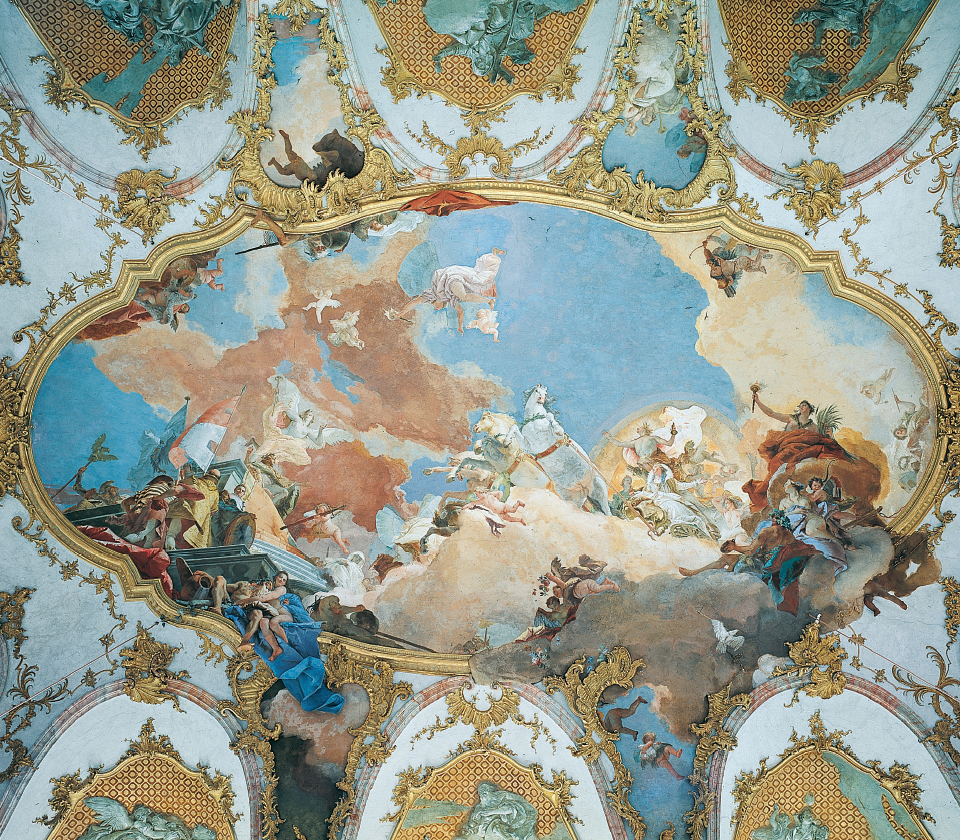The Music of Absolutism
Just as painting and architecture could glorify rulers through color and designs in space, music could glorify through sound. The nobility maintained horn players for their hunts, trumpeters for their battles, and orchestras for balls and entertainments. Smaller groups of musicians would play Tafelmusik (“table music”), background music during lengthy banquets. A special “festive” or “celebratory” orchestra featuring military instruments — trumpets and drums — was used to pay homage to kings and princes; by extension, it also glorified God, the “King of Kings,” as he is called in Handel’s Hallelujah Chorus. The words sung by the chorus in this famous work praise God, but the accompanying orchestra with its trumpets also pays splendid homage to King George II of England (see pages 143–44).
But the main musical vehicle of Baroque absolutism was opera. Opera today is a very expensive entertainment in which a drama is presented with music and stage spectacle. So it was in the Baroque era. The stage set shown on page 100 was created by a member of the Bibiena family, the foremost set designers of the time. It conveys the majestic heights and distances of an ideal Baroque palace by means of perspective, though the stage was actually quite shallow. The figures gesture grandly, but they are dwarfed by pasteboard architecture that seems to whirl as dizzily as does the painted architecture on Tiepolo’s ceiling.

One aspect of Baroque opera is unlike opera today: The stories were indirect tributes to the glory and supposed virtue of those who paid for them. For example, one favorite Baroque opera story tells of the Roman emperor Titus, who survives a complicated plot on his life and then magnanimously forgives the plotters. Strange as it may seem today, this story was set to music by dozens of court composers. It told courtiers that if they opposed their king, he might well excuse them out of the godlike goodness of his heart (for he claimed to rule by divine right). But it also reminded them that he was an absolute ruler — a modern Roman tyrant — who could do exactly the reverse if he pleased. Operas flattered princes while at the same time stressing their power and wealth.